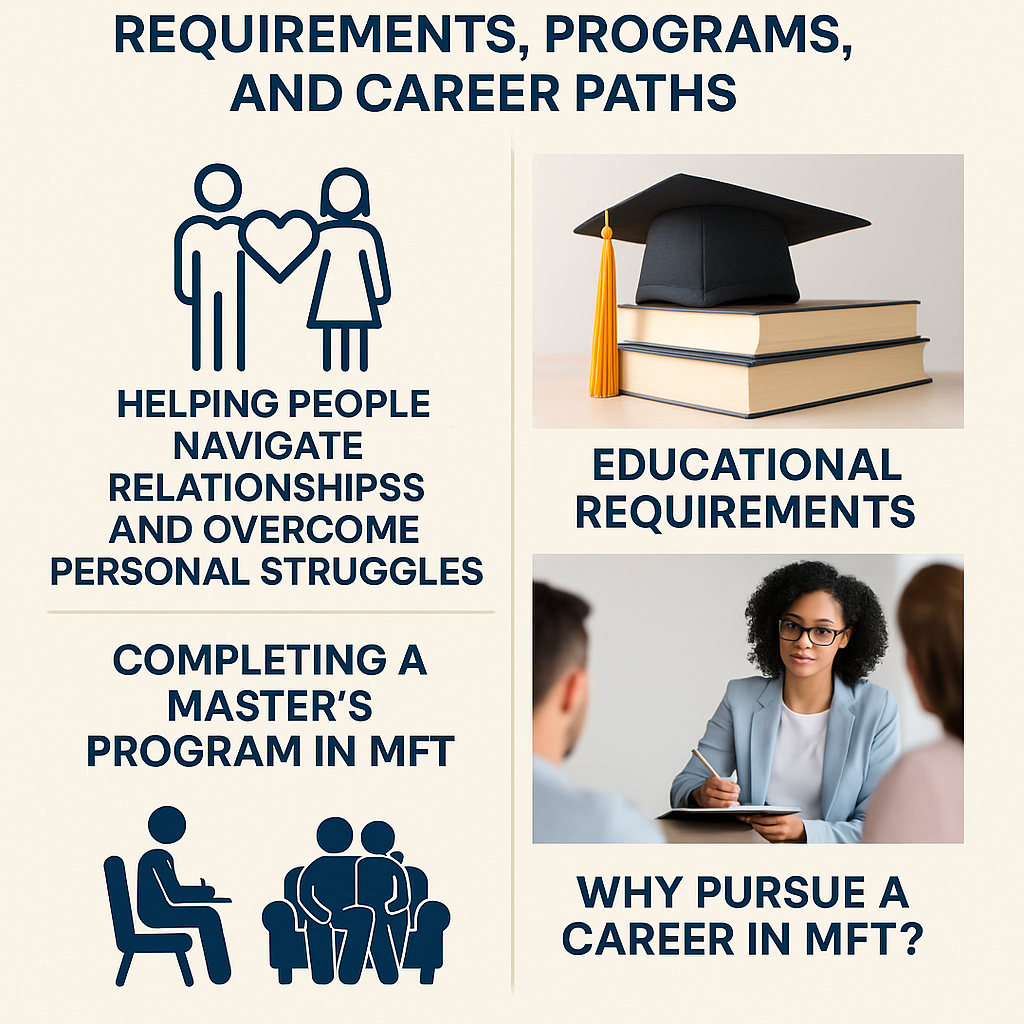Master’s in Marriage and Family Therapy: Requirements, Programs, and Career Paths
William Foster
2025-09-22
6 min read

Helping people navigate relationships and overcome personal struggles is a meaningful and rewarding career. A master's degree in Marriage and Family Therapy (MFT) provides the education and training needed to become a licensed therapist, working with couples, families, and individuals to improve emotional well-being and strengthen relationships.
What Marriage and Family Therapists Do
Marriage and family therapists (MFTs) work with clients to address emotional, behavioral, and mental health challenges. Unlike other mental health professionals, MFTs focus on how relationships impact overall well-being. Common responsibilities include:
- Guiding couples through relationship struggles and communication challenges
- Assisting families in coping with major life transitions, such as divorce or loss
- Supporting individuals dealing with anxiety, depression, or trauma
- Using evidence-based techniques to promote emotional healing and problem-solving
- Collaborating with other healthcare providers for holistic patient care
Educational Requirements
Earning a master’s degree in Marriage and Family Therapy is the key step to becoming a licensed therapist. The process generally includes:
1. Earning a Bachelor’s Degree
A bachelor’s degree is required before pursuing a master’s in MFT. Common undergraduate majors include psychology, social work, counseling, or a related field. While a specific major is not always required, coursework in human behavior, communication, and mental health can be beneficial.
2. Completing a Master’s Program in MFT
A master’s degree in Marriage and Family Therapy typically takes two to three years to complete and includes coursework in:
- Theories of counseling and psychotherapy
- Family systems and relational therapy techniques
- Ethics and legal issues in therapy
- Mental health assessment and diagnosis
- Cultural diversity and sensitivity in therapy
Supervised clinical training is a critical component of the program. Students gain hands-on experience by working directly with clients under the supervision of licensed therapists.
3. Gaining Postgraduate Clinical Experience
After earning a master’s degree, most states require additional supervised clinical hours before full licensure. This process usually involves two years of supervised experience in a clinical setting, such as a private practice, mental health center, or hospital.
4. Obtaining Licensure
Each state has its own licensure requirements, but most require passing a national exam, such as the Examination in Marital and Family Therapy. Keeping up with continuing education is also necessary to maintain licensure.
Why Pursue a Career in Marriage and Family Therapy?
Choosing a career in MFT is both personally and professionally fulfilling. Reasons to consider this path include:
- Making a Difference: Helping individuals and families heal and build stronger relationships brings a deep sense of purpose.
- High Demand: The need for mental health professionals is growing, creating strong job opportunities.
- Diverse Work Settings: MFTs work in private practices, hospitals, schools, and community organizations.
- Flexible Career Paths: Options exist to specialize in areas such as couples therapy, trauma recovery, or child and adolescent counseling.
Final Thoughts
A master's degree in Marriage and Family Therapy provides the foundation for a rewarding career in mental health and relationship counseling. With the right education, training, and dedication, becoming an MFT offers the opportunity to positively impact lives and contribute to the well-being of families and communities.
Sources:
- "Becoming a Marriage and Family Therapist" – American Association for Marriage and Family Therapy
- "How to Become a Licensed Marriage and Family Therapist" – U.S. Bureau of Labor Statistics

